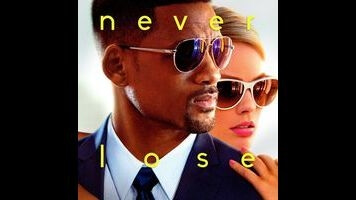Will Smith tries his hand at being Cary Grant in Focus

On the most basic level, the con-artist romance Focus is a Cary Grant movie in the North By Northwest or Charade mold. There’s a charismatic 6-foot-2 star who’s funny when he plays drunk (Will Smith), a love interest who’s almost young enough to be his daughter (Margot Robbie), a byzantine plot that’s never fully clarified, some travel-show-ready locations, and even a MacGuffin, which comes in the shape of a formula that makes race cars go ever so slightly faster. The thing about Cary Grant movies, though, is that they’re about 20 minutes longer than they would be if they starred anyone else, which isn’t a dig against them, but a reminder that charisma needs its own space, at least if it’s expected to carry a movie along from one scene to another. Focus’ problem isn’t that its stars lack charm, but that it’s squeezed into tight spaces between protracted explanations of setups, backstories, and twists—a poor example of the every-shot-must-convey-narrative-information school of filmmaking.
The funny thing is that writers-directors Glenn Ficarra and John Requa have been here before, on their entertaining debut feature I Love You Philip Morris, about a serial fraudster who meets the love of his life in prison and then stages a series of elaborate cons and escapes to stay together. And, like Focus, Philip Morris was plotty, unfolding as a series of lengthy setups and reveals; the difference was that the relationship between its central couple remained fundamentally the same, whereas the relationship between Nicky (Smith) and Jess (Robbie)—the protégé who became the one that got away—changes with every plot point, building to one of those twisty final acts where it turns out that nothing is what it seems. This is the kind of situation where leaving a little extra space for rapport could go a long way, and it doesn’t help that Smith tends to emote seriousness by relapsing into his After Earth performance, his face locked like a computer that needs to be rebooted. (At one point, he even utters that movie’s signature phrase, “Take a knee.”)
Though its doesn’t connect as a whole, Focus has its share of bright spots: a lengthy scene that finds Nicky and Jess gambling with a Chinese millionaire (BD Wong, in a performance that recalls the Coen brothers’ colorful one-scene characters) in a New Orleans Superdome skybox; the montage where Nicky explains how his team of conmen, scammers, and pickpockets works together; an abrupt shift in perspective from Jess and Nicky to the goon tasked with abducting them, following him as he shops for supplies and gets ready to foil their escape. Which is another way of saying that whatever pleasure there is to be had in Focus comes from the way Ficarra and Requa lay out information, filtering it through a generically slick style, and timing everything to an eclectic mix of classic rock chestnuts, Argentinean pop songs, and soul samples. All of this is glued together into the kind of plot where revealing specific details about anything past the five-minute mark would constitute some kind of spoiler, but which is also curiously uninvolving.